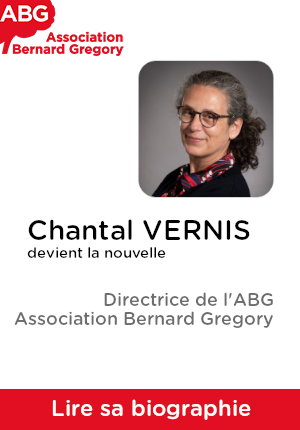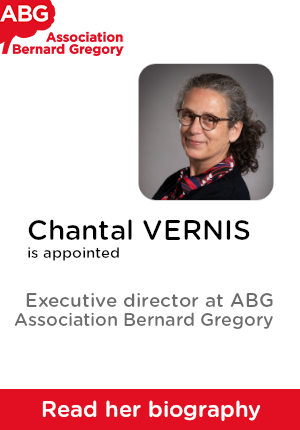Ceramic 3D printing at the nanoscale using nanoparticles-controlled photo-induced assemblies
| ABG-130405 | Sujet de Thèse | |
| 02/04/2025 | Autre financement public |

- Chimie
- Matériaux
Description du sujet
https://www.ens-lyon.fr/CHIMIE ) is the coordinator of the ANR 2024 project "Micron-scale ceramic objects by multiphoton stereolithography of ceramic nanoseed assemblies in gels" (CERAGEL), as part of a consortium with the "Laboratoire de Physique de l'ENS de Lyon" and "MATEIS" (INSA Lyon). CERAGEL aims to investigate the relationship between process parameters, structure, microstructure, and properties of 3D-printed functional microceramics. These microceramics are prepared using two-photon (2P) lithography processes. The photoactive resins are based on dispersions of crystalline nanoparticles in the presence of polymerizable metal-organic molecular monomers that act as cross-linkers and photoinitiators for radical polymerization.
The critical challenges addressed by CERAGEL are threefold: (i) gaining a fundamental understanding of the printing process at the nano and molecular levels, (ii) mastering the structure/properties relationship of microceramics at the nanoscale, and (iii) developing in situ characterization setups that couple rheometry with structural measurements, either through direct observation under a microscope during the printing process or by using USAXS to monitor the sol-gel transition. CERAGEL brings together a complementary consortium to investigate relationships between the parameters governing the process and those dictating the properties of the 3D-printed ceramic microstructures.
The PhD candidate will join the "Functional Materials and Photonics" team of the chemistry laboratory at ENS Lyon and will have the following objectives: synthesizing and functionalizing ceramic-based nanoparticles of various sizes and shapes, preparing ink formulations, and fully addressing their behavior during the 3D printing process. Additionally, the candidate will contribute to the characterization of the gel transitions, final structures, and mechanical and optical properties at the microscale level. The PhD student will work in close collaboration with the partners of the CERAGEL project.
Nature du financement
Précisions sur le financement
Présentation établissement et labo d'accueil
Description of the research organization/Higher education institution: École normale supérieure de Lyon is an elite French public institution that trains professors, researchers, senior civil servants, diplomats as well as business and political leaders. Students choose their courses and split their time between training and research in sciences and humanities. Built on the tradition of the ENS de Fontenay-Saint-Cloud, founded in 1880, the ENS de Lyon also focuses on educational research. It is a symbol of French Republican meritocracy and it remains committed today to disseminating knowledge to the widest audience and to promoting equal opportunity. If the quality of the research at École normale supérieure de Lyon and its laboratories is recognized at the highest level, both in the exact and experimental sciences and in the humanities and social sciences, it is the result of our high-standards in all fields, the attention paid to the recruitment of the best students and teacher-researchers, and our motivation to always push the boundaries of knowledge by making the most of the extensive benefits that result from working with a wealth of key players. We are ranked each year in the international top 10 best small research universities (THE ranking) and have forged an important network with the best research universities in the world. ENS de Lyon supports quality research that has earned it a Fields medal (Cedric Villani, 2010), Nobel prize (Anne L’Huillier, Physics 2023) and many CNRS medals. It encourages interdisciplinary studies to foster a better understanding of complex contemporary issues.
Key Figures : 2400 students, 550 teaching and research staff, 500 PhD students, 100 international students, 22 research laboratories, 12 education departments.
Site web :
Intitulé du doctorat
Pays d'obtention du doctorat
Etablissement délivrant le doctorat
Profil du candidat
Candidates should possess a background in (nano)material chemistry, with a Master's degree or equivalent, and have in-depth knowledge of structural and physicochemical characterizations. They must be capable of working in a team and actively leading collaborations with partners. Proficiency in English is required.
Vous avez déjà un compte ?
Nouvel utilisateur ?
Vous souhaitez recevoir nos infolettres ?
Découvrez nos adhérents
 Généthon
Généthon  CASDEN
CASDEN  Aérocentre, Pôle d'excellence régional
Aérocentre, Pôle d'excellence régional  Groupe AFNOR - Association française de normalisation
Groupe AFNOR - Association française de normalisation  ADEME
ADEME  Tecknowmetrix
Tecknowmetrix  CESI
CESI  Institut Sup'biotech de Paris
Institut Sup'biotech de Paris  ANRT
ANRT  ASNR - Autorité de sûreté nucléaire et de radioprotection - Siège
ASNR - Autorité de sûreté nucléaire et de radioprotection - Siège  MabDesign
MabDesign  ONERA - The French Aerospace Lab
ONERA - The French Aerospace Lab  MabDesign
MabDesign  Ifremer
Ifremer  Nokia Bell Labs France
Nokia Bell Labs France  Laboratoire National de Métrologie et d'Essais - LNE
Laboratoire National de Métrologie et d'Essais - LNE  PhDOOC
PhDOOC  TotalEnergies
TotalEnergies  SUEZ
SUEZ
-
Sujet de ThèseRef. 130176Strasbourg , Grand Est , FranceInstitut Thématique Interdisciplinaire IRMIA++
Schrödinger type asymptotic model for wave propagation
Expertises scientifiques :Mathématiques - Mathématiques
-
EmploiRef. 130080Paris , Ile-de-France , FranceAgence Nationale de la Recherche
Chargé ou chargée de projets scientifiques bioéconomie H/F
Expertises scientifiques :Biochimie
Niveau d’expérience :Confirmé







